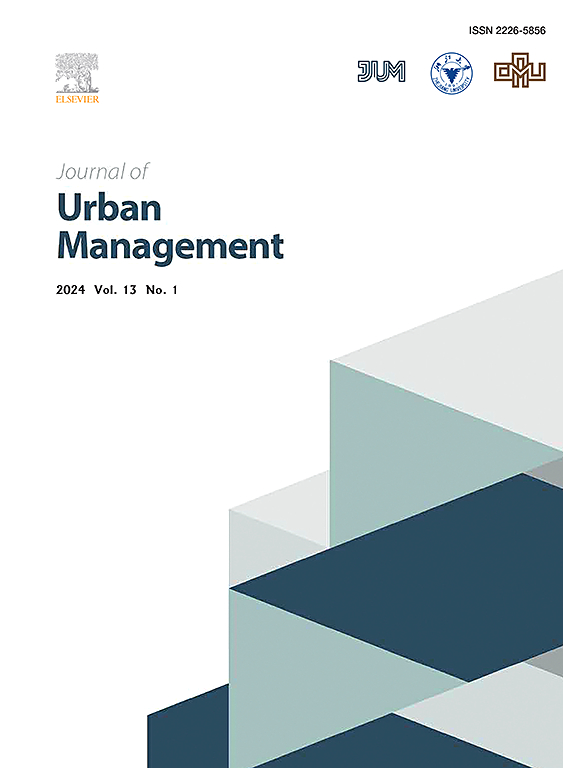A capability maturity model for smart city process-aware digital transformation
IF 5
2区 社会学
Q1 URBAN STUDIES
引用次数: 0
Abstract
Smart cities are constructed and developed by governmental bodies and urban leaders capable of digital transformation. This modification aims to mitigate urban challenges while fostering robust urban growth using advanced technologies. However, many existing maturity models fail to adequately address the specific requirements and gaps in digital transformation capabilities necessary for effective urban management. The implementation of information and innovative communication strategies in urban areas has led to the development of new organizational procedures and business models. City managers recognize that digital transformation can drive urban growth. Therefore, they can enhance their processes by following a clear strategy outlined in a digital transformation capability maturity model. Despite the growing emphasis on digital transformation in urban management, existing maturity models do not adequately capture the specific processes and requirements necessary for effective implementation, resulting in challenges for city managers in assessing their capabilities. For this purpose, this study evaluates smart city maturity models and identifies gaps in the requirements for digital transformation capability. As a result, an innovative model for assessing the maturity of digital transformation capability in smart cities is proposed. The presented maturity model is particularly helpful for businesses and private companies seeking to embrace digital transformation for urban growth. It facilitates their systematic advancement toward higher maturity levels by enabling them to assess current capabilities. The majority of assessors are either very satisfied or satisfied with the criteria, according to the SC-DT-CMM evaluation results.
面向智慧城市过程感知数字化转型的能力成熟度模型
智慧城市是由具备数字化转型能力的政府机构和城市领导者建设和发展的。这一修改旨在缓解城市挑战,同时利用先进技术促进强劲的城市增长。然而,许多现有的成熟度模型未能充分解决有效城市管理所需的数字化转型能力的具体要求和差距。在城市地区实施信息和创新沟通战略导致了新的组织程序和商业模式的发展。城市管理者认识到数字化转型可以推动城市发展。因此,他们可以通过遵循数字转换能力成熟度模型中概述的清晰策略来增强他们的流程。尽管越来越重视城市管理的数字化转型,但现有的成熟度模型并不能充分捕捉有效实施所需的具体流程和要求,这给城市管理者评估其能力带来了挑战。为此,本研究评估了智慧城市成熟度模型,并确定了数字化转型能力需求方面的差距。因此,本文提出了一种评估智慧城市数字化转型能力成熟度的创新模型。所提出的成熟度模型对寻求通过数字化转型促进城市增长的企业和私营公司特别有帮助。它使他们能够评估当前的能力,从而促进他们系统地向更高的成熟度水平发展。根据SC-DT-CMM的评估结果,大多数评估者要么非常满意,要么对标准感到满意。
本文章由计算机程序翻译,如有差异,请以英文原文为准。
求助全文
约1分钟内获得全文
求助全文
来源期刊

Journal of Urban Management
URBAN STUDIES-
CiteScore
9.50
自引率
4.90%
发文量
45
审稿时长
65 days
期刊介绍:
Journal of Urban Management (JUM) is the Official Journal of Zhejiang University and the Chinese Association of Urban Management, an international, peer-reviewed open access journal covering planning, administering, regulating, and governing urban complexity.
JUM has its two-fold aims set to integrate the studies across fields in urban planning and management, as well as to provide a more holistic perspective on problem solving.
1) Explore innovative management skills for taming thorny problems that arise with global urbanization
2) Provide a platform to deal with urban affairs whose solutions must be looked at from an interdisciplinary perspective.
 求助内容:
求助内容: 应助结果提醒方式:
应助结果提醒方式:


